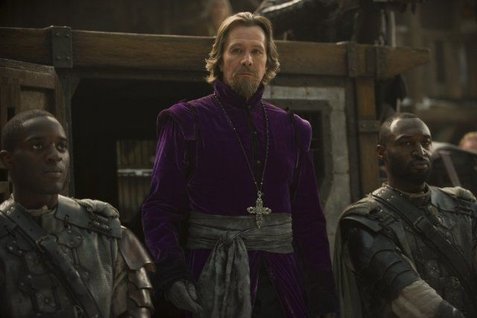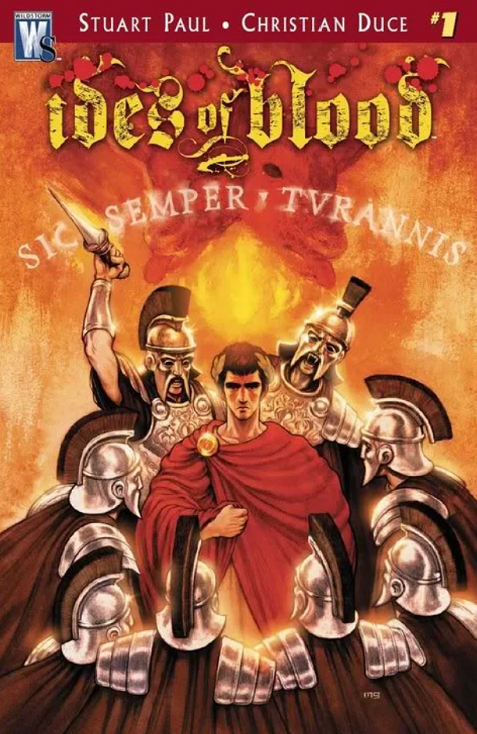Who in the World is Gary Oldman?
When theatergoers leave screenings of “Red Riding Hood” this weekend, a great number of them will be saying, “The best thing about that movie was Gary Oldman.” This isn’t necessarily the greatest compliment that Oldman’s ever been paid – trust us, we’ve seen the movie – but it’s one that he’s heard plenty of times, and rightfully so.

On the occasion of this latest film, we thought we’d take a look back at 20 of his most notable roles, most of which are found in films far better than “Red Riding Hood.” That’s most, though, and not all. (See #10 and #13.) Still, as track records go, you’ll soon see that Oldman’s is pretty damned enviable.
1. Sid Vicious (Sid and Nancy, 1986): Most would agree that it was Oldman’s performance as the late Sex Pistols bassist which really put him on the radar. Even those who criticized the accuracy of the film generally had glowing words for Gary, and that goes all the way up to Johnny Rotten himself. “The chap who played Sid, Gary Oldman, I thought was quite good,” wrote John Lydon in his autobiography, Rotten: No Irish, No Blacks, No Dogs. “Even he only played the stage persona as opposed to the real person, (but) I don’t consider that Gary Oldman’s fault because he’s a bloody good actor.” This was echoed by the Evening Standard British Film Awards, who named Oldman the year’s Most Promising Newcomer.
2. Joe Orton (Prick Up Your Ears, 1987): Only 34 years passed between the life and death of English playwright Joe Orton, and one might be able to successfully argue that more people know him for his connection to the Fab Four (he wrote a screenplay, “Up Against It,” which was rejected as the Beatles’ cinematic follow-up to “Help!”) than for his plays, let alone this movie, but if you’ve managed to see “Prick Up Your Ears,” then you’re already aware of the phenomenal work Oldman does alongside Alfred Molina, who plays Kenneth Halliwell, Orton’s boyfriend and – eventually – his murderer. Indeed, Oldman’s performance earned him a BAFTA Award nomination for Best Actor.
3. Rosencrantz (Rosencrantz & Gildenstern are Dead, 1990): Fans of the Bard with a sense of humor have long praised the way Tom Stoppard took two relatively insignificant characters from “Hamlet” and turned their actions – or, rather, their lack thereof – into a full-length play, but there’s not quite as much unanimity about the way the production transitioned onto the big screen. Still, the only real complaint tended to be that it probably played better when performed on a stage, which stands to reason. (After all, the play’s the thing, innit?) Granted, the humor’s a bit highbrow for the mainstream, but if you like Shakespeare, you’ll love seeing Oldman and Roth pondering their characters’ existence.
4. Jackie Flannery (State of Grace, 1990): Although Phil Joanou’s Irish-American crime drama didn’t break any box office records, possibly because the Italian-American criminal contingent had the higher profile at the time (this was right around the same time as “Goodfellas”), it sure had a hell of a cast: Oldman is teamed with Sean Penn, Ed Harris, Robin Wright, John Turturro, John C. Reilly, and Burgess Meredith. Throw in an Ennio Morricone score, and you’ve got the kind of picture that critics drool over…and rightfully so.
5. Lee Harvey Oswald (JFK, 1991): When you make a film about the assassination of President John F. Kennedy, if there’s one role that you absolutely, positively must cast perfectly, it’s that of the man who (ostensibly) assassinated him. In an interview with Empire, Oldman revealed that director Oliver Stone gave him a couple of plane tickets, a list of contacts, and told him to go research the part himself. You’d think it would’ve been easier on the budget if Stone had just paid for Oldman’s cab fare to the library, but, then, the library wouldn’t have provided Oldman with a tenth of the information about the man he was portraying that he ended up getting from his meeting with Oswald’s widow, Marina.
You can follow us on Twitter and Facebook for content updates. Also, sign up for our email list for weekly updates and check us out on Google+ as well.
Posted in: Entertainment, Movies, Television
Tags: Air Force One, Batman Begins, Bob Cratchit, Commissioner Gordon, Dr. Smith, Dracula, Drexl Spivey, Gary Oldman, Greg the Bunny, Hannibal, Harry Potter and the Goblet of Fire, Harry Potter and the Order of the Phoenix, Harry Potter and the Prisoner of Azkaban, Immortal Beloved, Ivan Korshunov, Jackie Flannery, Jacob Marley, Jean-Baptiste-Emmanuel Zorg, Jesus, JFK, Joe Orton, Lee Harvey Oswald, Leon, Leon the Professional, Lost in Space, Ludwig van Beethoven, Mason Verger, Pontius Pilate, Prick Up Your Ears, Red Riding Hood, Rev. Dimmesdale, Rosencrantz, Rosencrantz & Gildenstern are Dead, Sheldon B. Runyon, Sid and Nancy, Sid Vicious, Sirius Black, State of Grace, The Contender, The Dark Knight, The Fifth Element, The Professional, The Scarlet Letter, Tiny Tim, True Romance











